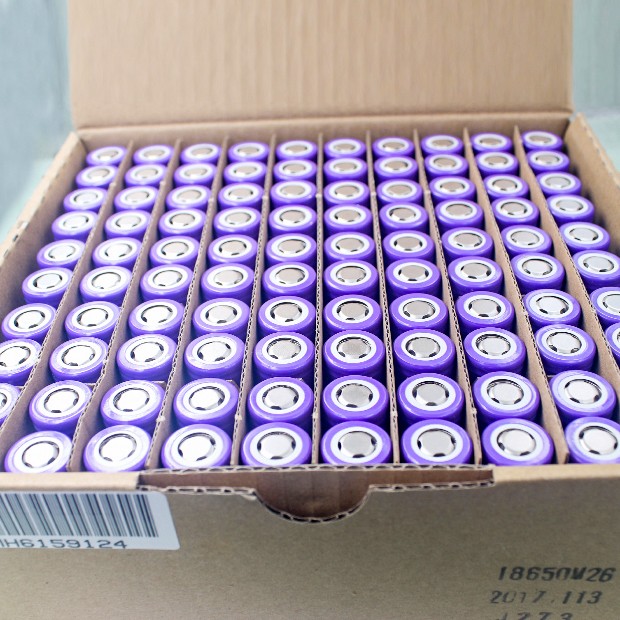The 18650 battery is a powerhouse in the world of lithium-ion batteries. Its name might sound like a part number, but this cylindrical cell has become a staple in everything from flashlights to electric vehicles. If you’ve ever been curious about the benefits, applications, and care tips for 18650 batteries, this blog is for you.
An 18650 battery is a lithium-ion rechargeable battery, typically measuring 18mm in diameter and 65mm in length (hence the name "18650"). They have a nominal voltage of 3.6V to 3.7V and a capacity that can range from 1800mAh to 3500mAh, making them popular for a wide variety of applications. Unlike AA or AAA batteries, 18650s provide a higher energy density, which means more power and longer runtime in a compact size.

The versatility of the 18650 battery makes it suitable for a wide range of applications:
1. Flashlights - High-powered LED flashlights often rely on 18650 batteries because of their high capacity and compact size.
2. Laptops - Many laptop battery packs use several 18650 cells wired together to provide the necessary power.
3. Power Banks - Portable power banks that charge smartphones and other devices often incorporate 18650 cells.
4. Electric Vehicles (EVs) - EVs, including Tesla's early models, used 18650 cells. These batteries are typically arranged in series and parallel configurations to create massive battery packs.
5. DIY Projects and Hobby Electronics - From e-bikes to drones, DIY enthusiasts favor 18650 cells for custom power solutions due to their reliability and availability.
1. High Energy Density: The 18650 cell has a much higher energy density compared to traditional Ni-Cd or Ni-MH batteries, providing more energy in a compact form.
2. Rechargeable: 18650s are designed for hundreds of charge-discharge cycles, making them a more sustainable option than disposable batteries.
3. Consistent Performance: They provide a steady discharge rate, which is essential for devices that need a reliable power supply.
4. Available in Protected and Unprotected Versions: Protected 18650 batteries have built-in circuitry to prevent overcharging, over-discharging, and short-circuiting, making them safer to use.
5. Longer Life Span: Properly maintained, 18650 batteries can last several years, making them a cost-effective solution in the long run.
An important consideration when choosing 18650 battery is whether they are "protected" or "unprotected."
· Protected Batteries: These have a small PCB (printed circuit board) built into the cell that adds protection from overcharging, over-discharging, and excessive current draw. They are slightly longer than standard unprotected 18650s and are a safer choice for beginners or applications where battery safety is paramount.
· Unprotected Batteries: These lack the protective PCB, making them slightly shorter and lighter. They are usually preferred by experienced users who build custom battery packs or need cells for high-power applications where maximum capacity and efficiency are desired.
To get the best performance and life span from your 18650 batteries, follow these tips:
1. Don’t Overcharge or Over-Discharge: Always use a charger designed for lithium-ion batteries, and never let the battery voltage drop too low (under 2.5V) or charge above 4.2V.
2. Store Properly: When storing for extended periods, keep the battery at around 50% charge and in a cool, dry environment. Avoid high temperatures and direct sunlight.
3. Check for Damage: Regularly inspect your batteries for signs of damage, swelling, or punctures. Discontinue use if the battery appears compromised.
4. Use the Right Charger: A quality charger can make a big difference in the battery’s lifespan. Look for chargers with overcharge protection and battery health indicators.
5. Avoid Extreme Temperatures: Operating at high or low temperatures can degrade the battery faster. Aim to use them in environments between 0°C and 45°C (32°F and 113°F).
While 18650 batteries are often the go-to for most portable applications, they are not the only option. Lithium Iron Phosphate Batteries (LiFePO4 battery) are another popular choice, especially in applications where safety and longevity are crucial. Here’s a quick comparison:
· Energy Density: 18650 battery usually have a higher energy density compared to LiFePO4.
· Safety: LiFePO4 battery cells are more stable and less prone to thermal runaway, making them a safer choice in high-temperature conditions.
· Lifespan: LiFePO4 battey typically offer more charge cycles (2000+), while high-quality 18650 battery cells average around 500 to 1000 cycles.
· Voltage Range: 18650 battery have a nominal voltage of 3.6V to 3.7V, while LiFePO4 battery cells operate around 3.2V, which can affect compatibility in some devices.
Myth: "All 18650 batteries are the same.
Reality: The quality of 18650 cells can vary significantly between brands. Cheap cells might not meet the capacity advertised, so it’s crucial to purchase from reputable manufacturers.
Myth: "Higher capacity is always better.
Reality: Higher capacity cells may have a lower maximum discharge rate. Choose based on the power requirements of your device, not just capacity.
Myth: "18650 batteries are dangerous.
Reality: While lithium-ion batteries can be hazardous if mishandled, proper care and use of protected cells significantly mitigate risks. In most consumer applications, they are perfectly safe.
The 18650 battery is a reliable, powerful, and versatile energy source that has found its way into countless applications. Whether you’re an enthusiast building a DIY project, a consumer looking for a replacement cell, or just curious about battery technology, the 18650 is worth understanding. Its compact size, energy density, and rechargeable nature make it a cornerstone of modern portable power solutions.
Next:3.3KW SMHC3-7240A obc charger ship to Italy
Previous:Sunwoda PHEV, 6C flash charging battery, solid-state battery debuted at Paris Auto Show
Contact Person: Miss. Elsa Liu
| WhatsApp : | +8617763274209 |
|---|---|
| Skype : | +8617763274209 |
| WeChat : | 17763274209 |
| Email : | Elsa@lifepo4-battery.com |